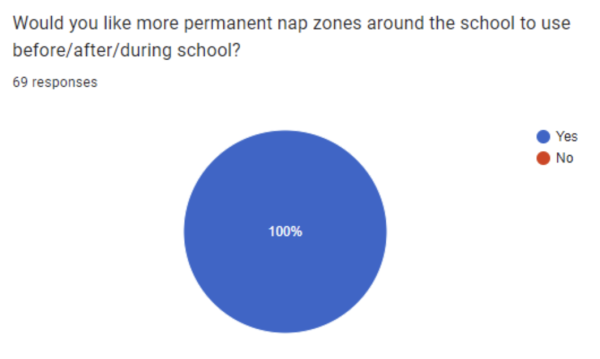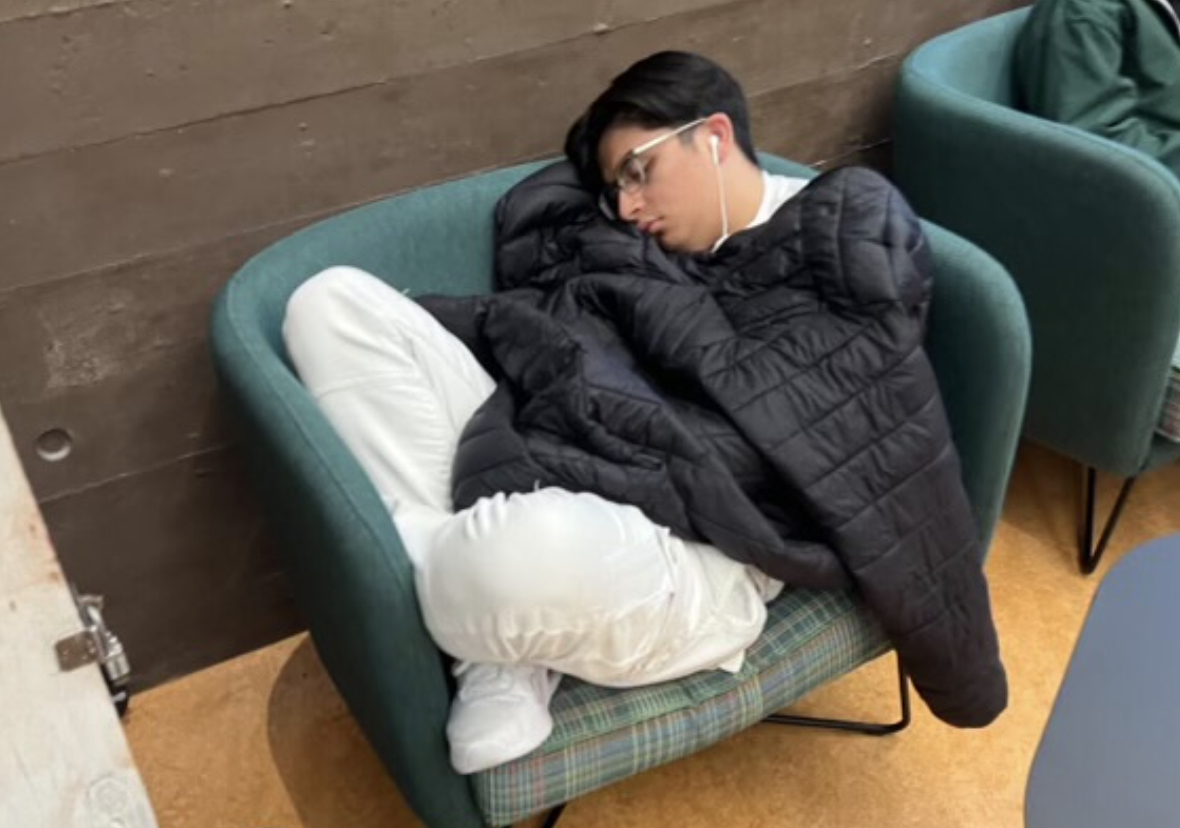The belief that everyone should get eight hours of sleep has stood widely accepted for many years without explanation. It is only supported by general statements such as, “eight hours or more of sleep is better for your memory,” and “sleeping less than eight hours harms your mental health.” When told to students, these generalizations come with little evidence since the mechanisms of sleep are complicated. By synthesizing the latest findings and research on sleep, students can learn more about sleep-managing processes and be motivated to manage their sleep schedules in different ways.
For youth, the recommended eight hours of sleep should be followed strictly, since the body and brain are still growing during this time. Sleep deprivation in the period where the brain is still developing is linked to underdeveloped parts of the brain, which can lead to the development of mental disorders and impaired thinking. Furthermore, the sleep-induced growth hormone is secreted the most during the first three decades of life, making quality sleep vital during these times. For adults, the eight-hour recommendation does not need to be strictly enforced, as the American Academy of Sleep Medicine and Sleep Research states that sleeping for seven hours or more is needed to sustain optimal health. Regardless of age, periods of sleep are when the immune system cells are at their peak level. Additionally, consistent sleep in adults is a vital factor in health, as results reveal that an inconsistency in sleep is associated with adverse health outcomes.
Western society has created an environment where optimal sleep is not achievable without sacrificing time for school, work, family, and social demands. Sleep deprivation is also exacerbated by Western society’s tendency to structure schedules for school or work on a “one size fits all” basis when circadian rhythm, the biological cycle of people’s desired sleep and wake times, can vary greatly.
Hearing Father John Gribowich’s homily at this year’s inaugural mass made me think about the possible therapeutic benefits of dreams. He experienced a phenomenon in which he found peace of mind as a result of something that had occurred to him in a dream. The scientific literature partially supports his hypothesis of how dreams can bring peace of mind.
Sleep can be most simply divided into two stages: Rapid Eye Movement (REM) sleep and non-REM (nREM) sleep. REM and nREM have been reported to both consolidate memories, but the types of memories they consolidate are different. Studies have found that nREM sleep is critical for memory consolidation of facts, events, and procedural (e.g. tying shoes) memories. REM sleep has been hypothesized to consolidate procedural memories and to emotionally reprocess memories. Fr. John claimed that sleep helped him experience a peace of mind, a claim consistent with the emotionally reprocessing aspect of REM sleep. REM sleep can emotionally reprocess traumatic events because it separates a specific type of neuron. (A neuron is a cell that communicates with others of its kind to allow us to use our senses.) When REM sleep separates our neurons, it separates the dendrite, the receiving part of the neuron, and the soma, the body of the neuron. This separation causes the dendrites to be activated while keeping the soma deactivated, allowing a person to re-experience emotionally powerful memories like a car crash without the fear attached to the moment. Reliving traumatic experiences in dreams allows emotions to reprocess and detach from the event through extinction learning. The amygdala, the section of our brain linked to anger, fear, and sadness has been shown to be larger and more active when people are deprived of REM sleep. Altogether, REM sleep’s ability to detach negative emotions from emotionally powerful memories supports Fr. John’s claim about sleep. Despite these mechanisms, many students do not fully utilize the powers of sleep.

Last year, Madison Lee ‘25 and Morgan Lee ‘26, conducted an experiment for their i2 project that created zones around school to help students cope with stress while at school. Prior to their experiment (Lee), they conducted a schoolwide poll and found that 88% of survey student participants consider themselves sleep deprived. Later, they offered students a survey after exposure to the nap zone treatment, and 100% of student participants wanted more nap zones in the school.
Their solution to sleep deprivation provides an effective way to alleviate some of the negative effects associated with reduced sleep. However, their proposed solution does not allow for the REM stage to occur, which on average starts ninety minutes after sleeping.
Besides better time management and giving up social obligations, one thing that can improve sleep quality is leveraging light exposure in order to balance your hormones that makes you feel less groggy in the morning and tells your body to go to sleep. Research has found that exposure to short-wavelength or blue light in the morning in combination with restricted light in the evening can advance the circadian rhythm, while blue light in the evening and restricted light in the morning can slow it down. Fine-tuning the circadian rhythm allows students to get more consistency in terms of sleep schedule, improving mental health. Although sleep deprivation still remains a silent epidemic, awareness of this issue is a step in the right direction.








